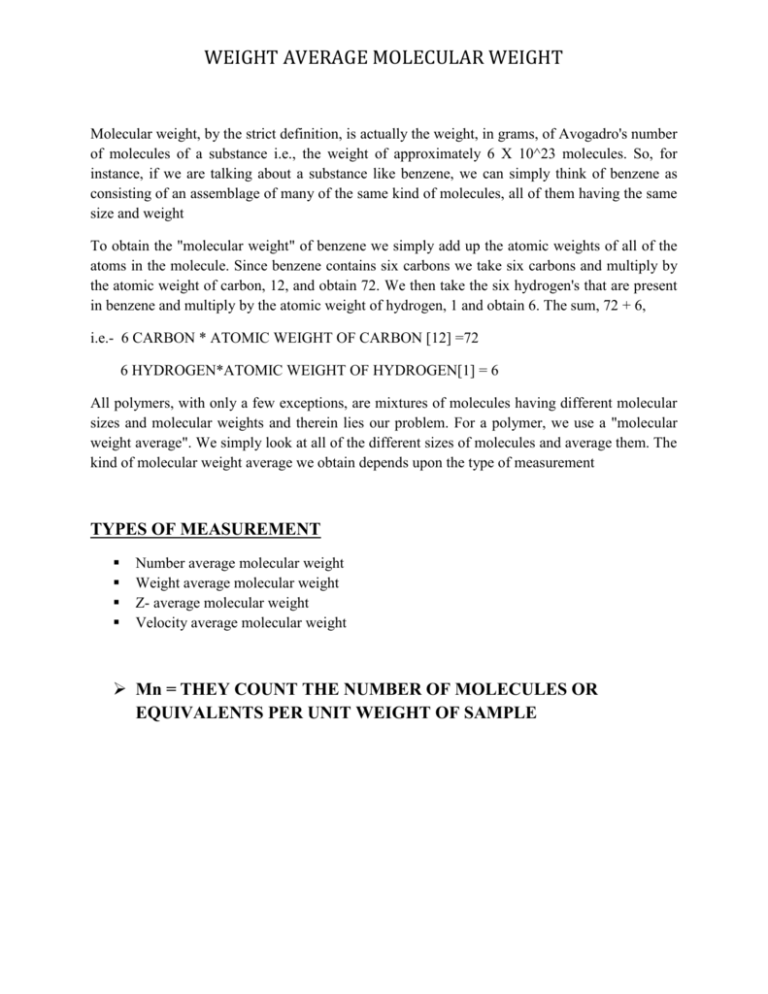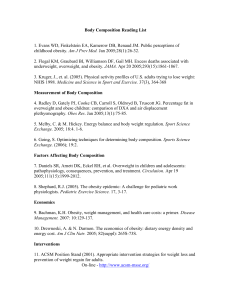weight average molecular weight
advertisement

WEIGHT AVERAGE MOLECULAR WEIGHT Molecular weight, by the strict definition, is actually the weight, in grams, of Avogadro's number of molecules of a substance i.e., the weight of approximately 6 X 10^23 molecules. So, for instance, if we are talking about a substance like benzene, we can simply think of benzene as consisting of an assemblage of many of the same kind of molecules, all of them having the same size and weight To obtain the "molecular weight" of benzene we simply add up the atomic weights of all of the atoms in the molecule. Since benzene contains six carbons we take six carbons and multiply by the atomic weight of carbon, 12, and obtain 72. We then take the six hydrogen's that are present in benzene and multiply by the atomic weight of hydrogen, 1 and obtain 6. The sum, 72 + 6, i.e.- 6 CARBON * ATOMIC WEIGHT OF CARBON [12] =72 6 HYDROGEN*ATOMIC WEIGHT OF HYDROGEN[1] = 6 All polymers, with only a few exceptions, are mixtures of molecules having different molecular sizes and molecular weights and therein lies our problem. For a polymer, we use a "molecular weight average". We simply look at all of the different sizes of molecules and average them. The kind of molecular weight average we obtain depends upon the type of measurement TYPES OF MEASUREMENT Number average molecular weight Weight average molecular weight Z- average molecular weight Velocity average molecular weight Mn = THEY COUNT THE NUMBER OF MOLECULES OR EQUIVALENTS PER UNIT WEIGHT OF SAMPLE









